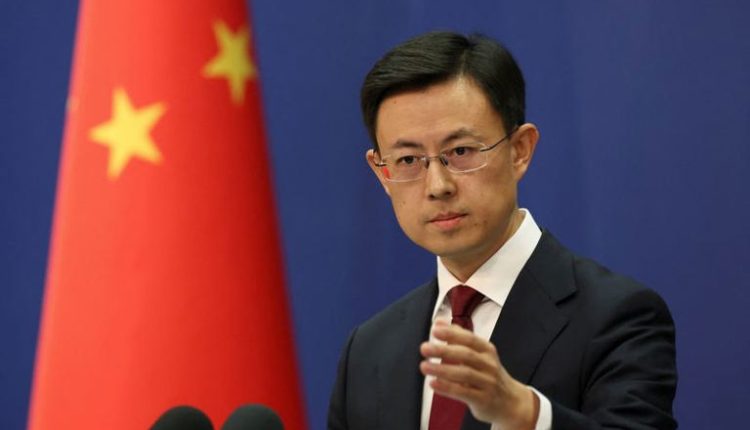China Opposes Lifting UN Sanctions on HTS Despite Its Role in Syria
By Kardo Roj
- DAMASCUS, Syria (North Press) – China has expressed serious reservations about proposals to remove the Syrian armed group Hayat Tahrir al-Sham (HTS) from the United Nations Security Council sanctions list, despite the group’s ascension to power and its leader assuming the presidency of Syria’s transitional government following the overthrow of the Assad regime.
- Speaking at a press briefing on February 18, Chinese Foreign Ministry spokesperson Guo Jiakun stated that the conditions were not yet met for lifting sanctions on HTS and its key members, which remain listed under the UN Security Council’s 1267 Sanctions Committee.
- “The new Syrian authorities must take concrete measures to actively address international concerns before any reconsideration of their status,” Guo said, emphasizing Beijing’s cautious stance on the matter.
- China’s opposition underscores broader international concerns regarding the legitimacy and long-term stability of the transitional government in Syria. HTS, formerly known as Jabhat al-Nusra, was designated as a terrorist organization by the UN due to its past affiliation with al-Qaeda. Although it announced its formal split from al-Qaeda in 2016, many countries, including China, Russia, and the United States, remain skeptical about its ideological shift and governance capacity.
- The debate over sanctions comes as Syria undergoes a significant political transformation. Following months of intensified military operations and negotiations between opposition factions, HTS emerged as the dominant force within the transitional administration, leading to the dissolution of rival militant groups and their integration into a newly established Ministry of Defense.
- The decision to unify armed factions under a central command was reached during a high-level meeting between military leaders and Ahmed al-Sharaa, the newly appointed transitional president. The move was aimed at consolidating security and demonstrating governance capability in an effort to gain broader international recognition.
- However, China and other international actors remain wary. “While we acknowledge the political shift in Syria, the new authorities must demonstrate a clear commitment to counterterrorism, human rights, and international cooperation,” Guo added.
- China, a permanent member of the UN Security Council, has played a key role in shaping international policy on Syria. It has historically aligned with Russia in supporting the Assad government but has also engaged with various Syrian opposition groups as the political landscape evolved. Analysts suggest Beijing’s reluctance to delist HTS stems from concerns over jihadist influence and the potential implications for security in China’s Xinjiang region, where authorities have long accused Uyghur militants of having ties to Syrian extremist groups.
- The issue of lifting sanctions on HTS is expected to be a contentious subject in upcoming UN Security Council discussions. While some Western nations have signaled a willingness to reassess HTS’s status in light of its governance efforts, others remain cautious.
- The new Syrian leadership has yet to formally respond to China’s concerns but has previously stated its commitment to engaging with international partners to secure diplomatic legitimacy and economic support. The transitional government faces mounting challenges, including rebuilding war-torn infrastructure, addressing humanitarian needs, and navigating geopolitical rivalries.
- As the international community watches closely, the road ahead for Syria’s transitional authorities remains uncertain. The extent to which they can convince global powers of their legitimacy and commitment to stability will likely determine the future trajectory of diplomatic and economic engagement.

